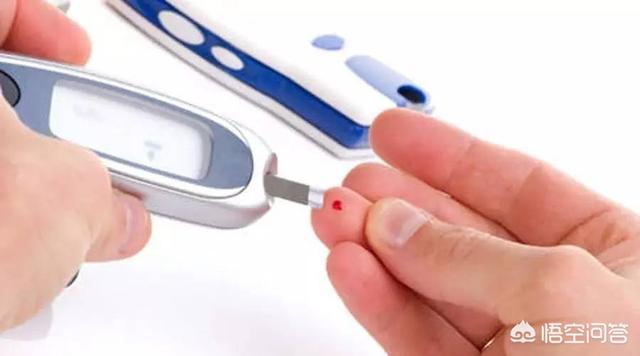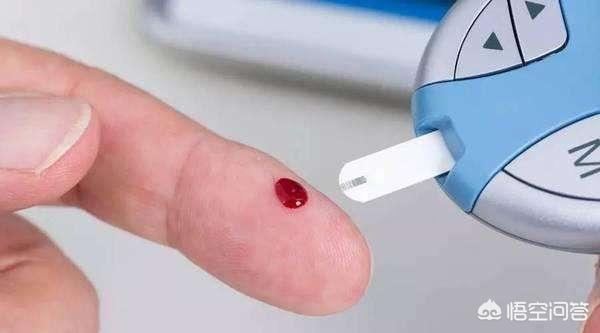What is the approximate life expectancy of a diabetic?
I don't know about anyone else, my father died of diabetes, my father was diagnosed with diabetes at 41 and was 62 when he died.
When he was diagnosed with diabetes early on, he started taking hypoglycemic medication, and because he was thin himself and there was not enough awareness of diabetes in those days, he didn't pay a lot of attention to his diet and lived pretty much like a normal person.
Then the blood sugar has not been able to drop, began to take insulin, blood sugar control, diet began to control, do not dare to eat fruit, do not dare to eat a lot of rice, do not dare to touch the sugar things, but once a person does not dare to touch something, it seems that it will be a strong desire to eat, my father at that time the control of the very painful.
By the age of 58, he suddenly became critically ill with kidney failure and dialysis. One of the complications of diabetes.
From there it was the road to dialysis, a painful period where he had to go to dialysis 2 times a week. But he was allowed to eat something sweet before dialysis, and that was probably the only thing that made him happy during those days.
After a year and a half on dialysis, there was a sudden exacerbation and hospitalization, again critical, brought back from the life and death line. Dialysis was increased to three times a week.
Body is getting worse, poor resistance, hospitalized every month. No healing ability foot rot a little, it is difficult to heal. The medication and injections did not work, but later on, I used a local remedy, and it healed.
The aftermath of dialysis is iron overload, nutrition will be lost, in such a vicious circle, in my father was 62 years old, finally did not hold out, internal bleeding, blood in the stool died.
In all the years that he was gone, it was painful for us to think of him alive, but to watch our father live with so much pain and so little dignity, and to rejoice that he was relieved.
Diabetes doesn't look like it's going to hurt anyone, but in the end, it's so painful that it's like a chronic death.
So yeah, take care of your body and love yourself.
 No one does not want to live a long life, but how to live a long life, the most fundamental is to do a good job of health care for their own bodies, like a car, if you do not do regular maintenance, do not take care of, not many years to drive will be scrapped, normal people do not take care of their own bodies will not be more than the standardized treatment of diabetic patients to live a longer time, on the contrary, diabetic patients to get the opportunity to live a long life will be more, why?
No one does not want to live a long life, but how to live a long life, the most fundamental is to do a good job of health care for their own bodies, like a car, if you do not do regular maintenance, do not take care of, not many years to drive will be scrapped, normal people do not take care of their own bodies will not be more than the standardized treatment of diabetic patients to live a longer time, on the contrary, diabetic patients to get the opportunity to live a long life will be more, why?
Diabetes is a disease that is characterized by elevated blood glucose, and the greatest danger lies in the damage to the blood vessels, which can be said to be the life expectancy of a person, and from this point of view, diabetes has a great impact on the life expectancy, but also because of this, it makes diabetic patients pay more attention to the protection of blood vessels, because diabetic vasculopathy occurs in this way:
The elevation of blood sugar makes the blood vessels like soaking in "sugar water", constantly being eroded by high sugar and damaged, and the fats in the blood will take the opportunity to be deposited on the damaged blood vessels, which will then cause inflammatory reactions, destroying the normal structure of the blood vessels like pus from wounds, and forming plaques, which may block the blood vessels causing ischemia of the surrounding tissues and organs, and may also cause the blood vessels to rupture, leading to blood vessel breakdown, and eventually causing life-threatening lesions of the heart, brain, eyes, kidneys and other vital organs. These plaques may block the blood vessels causing ischemia in the surrounding tissues and organs, or they may rupture the blood vessels leading to blood vessel rupture, which ultimately leads to life-threatening lesions in the heart, brain, eyes, kidneys and other vital organs.
It can be seen that as long as the blood glucose control in the normal range, you can avoid damage to blood vessels, and at the same time pay attention to the control of blood lipids, even if there is damage to the blood vessels, but also can greatly reduce the deposition of fat, vascular pathology will reduce the risk of occurrence of blood vessels will be able to get good protection. Therefore, as long as the standardized treatment of diabetes, and normal people are no different, today's diabetes treatment measures are very perfect, as long as patients pay attention to get good control, the key lies in the patient's own understanding of diabetes and confidence.
In addition, diabetes is actually a lifestyle disease, and the daily diet is appropriate, exercise exercise whether to adhere to, whether regular routine and so on the details of life are closely related to the effective control of diabetes must start from these details, and in fact, these details of all people, are related to the ability to live a long life, diabetic people are actually more than the average person to pay more attention to this change in the details of the long life The diabetic person actually pays more attention to this change of details than the ordinary person, which provides more guarantee for a long life.
To summarize, how long a diabetic can live does not lie in having diabetes itself, but depends on the knowledge and attitude towards diabetes. It has been proved that: as long as diabetes is treated in a standardized way, diabetics enjoy the same life span as other people, and even live longer than those who are so irregular in their life and don't take care of their body.
I hope this answer can help you, welcome to click on the attention and leave a message, together to learn and exchange more health knowledge.
Diabetics live as long as they can control their blood sugar, and their life expectancy is no different from a normal person. Some even live longer by adopting healthy habits.
Nowadays, with better living conditions, diabetics are common and there are many ways to control blood sugar. The most scientific method is to follow the guidance of endocrinologists and choose the method that suits you, taking oral hypoglycemic drugs or injecting insulin regularly.
Why do some diabetics lose their lives?
The scary thing about diabetics is that many of them do not have symptoms, especially in type 2 diabetes, where the patient does not have the symptoms of three more and one less (drinking more, eating more, urinating more, and losing weight), so they do not pay much attention to taking their medication on time and do not test their blood glucose on a regular basis, which results in the blood glucose being at a higher level for a long period of time, making them susceptible to complications.
There are also a lot of health food sellers who strongly promote the side effects of western drugs, and many patients are resistant to oral hypoglycemic drugs and insulin injections.
This group of people with chronically elevated blood glucose will have reduced immune function and are prone to a number of serious infections, as well as reduced kidney function, diabetic ketosis, peripheral neuropathy, and more, some of which are fatal.
This patient was just over 30 years old, with blood glucose of 20+, and had a secondary infection of tuberculosis with massive destruction of lung tissue on the left side and formation of multiple huge cavities, coughing up blood.
Diabetics with reduced immune function are susceptible to infections such as Staphylococcus aureus, Aspergillus, Mycobacterium tuberculosis, Klebsiella pneumoniae, etc. Some infections progress rapidly and can be fatal in a short period of time.
This young man was okay, and after a year of systematic treatment, the lesions were significantly absorbed.
Below is another patient, just 32 years old with blood sugars in the 30s, who developed a Klebsiella infection that caused a lung abscess, liver abscess and lower extremity infection that was barely resuscitated and cost many, many dollars:
The left leg is visibly swollen with many black bubbles in the muscle spaces. Patients with severe infections like this one have a high mortality rate!
So to summarize, diabetics should follow the guidance of endocrinologists according to their own specific conditions, take medication regularly, eat scientifically and exercise moderately.
I'm Dr. Howe in Imaging. Welcome!
Thanks for the invite.
What is the approximate life expectancy of a diabetic? Xiao Qiang has a living example next to him, here, sharing it with you.
My oldest mother (my great-uncle's wife) just passed away the year before last, and I can't remember how many years it was from the time she found out she was diabetic in her thirties to the time of her death, except that, at the time of her death, she was 89 years old! Why did she live to that age? I now look back and summarize that it was entirely attributed to her four ungrateful sons! Why do you say that?
My eldest uncle was very ungrateful, and my eldest mother was even worse than him! As a result, in his old age, his four oldest sons got married one after another, and their daughters-in-law were more violent than the others! Especially the eldest son and his wife, jumping up and down and cursing their parents was a common thing, so my uncle and my mother lived alone, living that is not enough to make ends meet, not hungry, but also can not eat well. Later, my uncle died, leaving my mother alone, life is even more difficult, to put it mildly, the staple food is plain water soaked mixed grain pancakes! A few years before her death, because of complications from diabetes, her eyes were basically unable to see clearly, but her legs were still very good, and as long as her body was not feeling well, she would not call, and she did not have a phone. She would walk ten miles to my house and my mother would take her to the doctor. In this way, 15 years after my eldest uncle's death, my eldest mother passed away one day in a deep sleep.
Having said that, it seems like it has nothing to do with diabetes, but in actuality, from my oldest mother, I've summarized a few points, so let's see if they make sense.
1. Bad food
Because the children are not filial, the old lady lives a relatively hard life, the main food is mainly based on mixed grain pancakes, and then, the most eaten is a variety of vegetables, because their own family still has a little bit of self-reserved land. What milk, meat, nutritional products of just the New Year's festivals may only have.
2. A good state of mind
Perhaps they feel that it is retribution, the child is not filial just right, there is no interaction, and do not take care of the grandchildren, nothing to sneak around, find a few old men and women nagging, the day is also so past.
3、Love sports
For an old woman in the countryside, there is no square dance, not to mention what the fashionable fitness, but also walk, chatter, often go to catch a big market, the most important thing is that they still have a few points of land, weeding, planting vegetables, think about it is still very leisurely.
4、Don't believe in biased prescriptions, find a doctor if you have a problem
The old lady is very stubborn, as long as the body is not comfortable, not to my home to find my mother, and then go to the hospital to see a doctor, the doctor also knows that the old lady is a low income, every time is prescribed the cheapest medicine, even if the more serious times, have not been hospitalized. However, as long as the doctor's orders can not eat, can not do things, that is absolutely follow the doctor's advice.
Speaking of which, how many years do you think you can live with diabetes? As long as you make peace with it, and isn't my oldest mom a good example?
Last but not least, I would like to tell you that my aunt's most unfilial son, my cousin, guess what happened to him now? You wouldn't believe it, but my eldest daughter-in-law, the village's top shrew, died at the age of 49 after a big fight with someone ten years ago! My cousin, two years before my mother died, died of a brain tumor! 60 years old! Unbelievable, isn't it? It's not made up, it's true!
Ladies and gentlemen, I am Xiao Qiang, although diabetes is an incurable disease, diabetes is not terrible, my eldest mother, a poor old woman in the countryside, did not almost live to 90 years old? See here, give me a nod of approval, if you think my answer is okay, and then help forward it.
Some people say that diabetes is an "immortal cancer", but the "immortal" here is only relative to cancer, not really immortal. Then some friends may ask, if you really have diabetes, how long can you live? Today I will speak with the data to give you a look at the approximate life expectancy of diabetics.
How long can you live with diabetes?
First of all, it is worth reminding that the following data analysis is only a general overview, specific to the individual, the situation is unique, it can be said that diabetic patients as long as they can comply with medical advice standardized medication, good management of diet, exercise, blood glucose control, life expectancy is actually no different from normal people.
According to the definition of diabetes mellitus in the latest edition of China's Internal Medicine, diabetes mellitus is a metabolic disease characterized by elevated blood glucose caused by a variety of reasons, which can lead to chronic progressive lesions, functional deterioration and failure of the eyes, kidneys, blood vessels and other tissues and organs.
This question can not be generalized, need to be analyzed on a case-by-case basis. Today I will analyze the two most common types of diabetes: type 1 diabetes and type 2 diabetes.
For type 1 diabetes: A 40-year study in the United States included 1,075 patients with type 1 diabetes, and as of 2008, 202 of these 1,075 patients with type 1 diabetes had died (a mortality rate seven times higher than that of the normal control population). Historical statistics showed that the 10-year cumulative survival rate for these 1,075 patients was 98%, the 20-year cumulative survival rate was 93%, the 30-year cumulative survival rate was 81%, and the 40-year cumulative survival rate was 68% (meaning that approximately one-third of them would die within 40 years of diagnosis). 2015 JAMA also reported that type 1 diabetes shortens life expectancy for men by approximately 11.1 years in men (20+46.2 years of life expectancy in type 1 diabetes and 20+57.3 years of life expectancy in the normal population) and 12.9 years in women (20+48.1 years of life expectancy in type 1 diabetes and 20+61.0 years of life expectancy in the normal population).
For type 2 diabetes: a 2018 study published in Diabetologia by academics at the University of Edenburgh, UK, reported that type 2 diabetes may shorten life expectancy, with the gap between the life expectancy of people with type 2 diabetes and the normal population being about 5.4 years in the group of women aged 40-44 (life expectancy of women with type 2 diabetes aged 40-44 (40-44) + 37.2 years and normal population life expectancy (40-44) + 42.6 years) and about 4.1 years in the group of men aged 40-44 years (life expectancy of men with type 2 diabetes aged 40-44 years (40-44) + 35.3 years and normal population life expectancy (40-44) + 39.4 years).
As can be seen from the above, although the life expectancy of people with type 1 diabetes is much shorter than that of the normal population, the average is still close to 70 years. The life expectancy of type 2 diabetics is smaller than that of the normal population, with an average life expectancy of more than 70 years. Therefore, for people with simple diabetes, as long as they receive regular treatment, they can still get a longer life.

My mom has been diabetic for more than ten years and has been controlled by oral medication with insulin, daily exercise and diet control. My grandmother has been a diabetic for half her life and will soon be 90 years old, also well controlled with oral medication and no insulin.
Diabetes is not something that you will hang up immediately when you get it, what really jeopardizes the life of the patient is the complications of diabetes. Over time, with poor blood sugar control, diabetic patients will develop a series of complications, peripheral neuropathy, cardiovascular and cerebrovascular disease, fundusopathy, renal lesions and so on.
Having diabetes is not an immediate death sentence. It is what you do that determines how long you will live. If you don't treat it properly, don't control your diet, don't follow your doctor's orders, don't exercise or lower your sugar, and obviously have the disease but just don't treat it, then even if you were supposed to live 50 years, you'll still be tossed around and say that you won't be able to report to Marx for a few years.
Many people with diabetes, once diagnosed, take their medication well and stick to their medication and life interventions. That's why so many people with diabetes live longer. Another female doctor's mother in our department, diagnosed with diabetes at the age of 40, is now more than 80 years old, as always, the body is strong, blood glucose control standards, the old lady gets up every morning to exercise in the park, not at all like a sick person!
Therefore, the life expectancy of diabetics, there is no approximate, in their own practices, as long as you do the right thing, you can control the condition, maximize the delay of complications, borrow another 50 years from the sky!
Outpatient clinics often encounter such diabetic patients, they are very worried, always have a kind of suffering from a 'terminal disease' idea, and even some people say that diabetes is 'chronic cancer', 'living suffering but can not die', in a sense, this is not unreasonable, after all, many diabetic patients in the late stage of the real pain;
As we all know, diabetes itself is not scary, but its complications, such as diabetic nephropathy, diabetic retinopathy, diabetic neuropathy, diabetic foot and so on, the occurrence of these complications is closely related to the abnormalities of the blood glucose level, therefore, lowering and stabilizing the blood glucose level is very important for the prevention and treatment of diabetic complications;
Medical science has developed to such an extent that even if it cannot cure diabetes, it can still control the condition well. Although it cannot prevent the occurrence of diabetic complications, it can delay the appearance of complications, slow down the rate of progression of complications, and improve the quality of survival of patients;
Dr. Zhang's patients have several patients who have been sick for more than 30 years, the oldest one is already 86 years old, and their current physical condition is not worse than that of healthy people of the same age, and even better in some aspects, the reason does not only lie in the application of medication, but also a good lifestyle - do not smoke, drink less alcohol, and keep your mouth shut, Take steps, get enough sleep, be emotionally optimistic, and so on!
In conclusion, if diabetic patients can pay attention to the management of daily life style on the basis of regular medication and actively control their blood glucose level, diabetes will not become an obstacle to the patients' survival, and their life expectancy will naturally not be less than that of normal people!
Can you live past 10 years with diabetes? Not necessarily, if this patient is 90 years old at the time of diagnosis.
Okay, first a joke. This is a question from a sugar addict on Knowledge. Sugar lovers with a little common sense should know the answer: with diabetes, of course you can live past 10 years.
But it would be a bit of a mindfuck to just answer in one sentence. And reality isn't really as good as we want it to be.
Getting healthier after 16 years of type 2 diabetes
Let's start with the first respondent who answered this thread in his own words:
I got type 2 diabetes at the age of 22 when I first joined the workforce, I am now 38 years old and have adhered to diet control, exercise and medication for 16 years. Currently there are no complications, and my physical condition and body shape are better than those of my age.
In the workplace from poor second-generation graduates mixed to the middle level of the central enterprises, have a family, have children. Last year, I resigned and started my own business. What I want to say is that diabetics can also work and live like normal people.
These ten years, in addition to formal treatment, strict control of diet, adhere to exercise and exercise, do not smoke and drink, do not stay up late, do not lose temper, no bad habits, haha, this is why diabetes is called a gentleman's disease (and one more thing, not contagious).
Because of long-term exercise (jogging + equipment), I am now a standard body (174cm, 66kg) pecs abs inverted triangle are refined out. I think if I don't have diabetes, now I will be a big belly, smoking and drinking to stay up late playing cards, have high blood pressure and high blood fat or other problems?

Is it a blessing in disguise from that point of view?
More than ten years of work in state-owned enterprises, I did from interns to executives, senior accountant title, halfway back to my alma mater to study to get a master's degree, 36 years old resigned to do freelance work, the current villa BMW have. I have a gentle and considerate wife, a lovely son, and now I am preparing for my second child. He also likes to travel, and has been to many places at home and abroad.
I am in no way bragging about how great I am, but I want to share with my fellow diabetics that diabetics who are well controlled are perfectly capable of enjoying their lives and pursuing happiness just like normal people, and should pursue happiness and joy! Life should not be gray because of diabetes!
Type 1 diabetes mellitus for 32 years without any complications
Tianjin boss, diagnosed with type 1 diabetes at the age of 9, now 32 years have passed (yikes, accidentally exposed his age) without any complications, and every time he goes offline to run various activities, he is challenged by people who say that he is a fake sugar addict.
Because he is white and tender-looking, his blood sugar has always been well controlled, with his glycosylated hemoglobin hovering around 6% year-round. If he didn't have to inject insulin and monitor his blood sugar every day, many people wouldn't believe that he has been sick for more than 30 years.

Of course, you do not have any psychological burden, in the beginning, Tianjin boss also walked a lot of detours, a variety of folk remedies, ancestral remedies, etc. have tried, and finally found that a variety of biased after the road and not much effect, only to embark on the right path.
So, if you're still on the wrong side of the road, don't shame yourself in front of the glowing image of the sugar control mavens. Who hasn't had an embarrassing experience? It's never too late to wake up and get on the right path whenever you can.
Is there more besides these two?
After reading these two cases, you may be briefly excited for a while, but rationally you will immediately remember: Aren't you the same as those who sell fake drugs? Make two unique cases to fool me, is there any universal significance?
Of course there is!
There are countless type 2 diabetes mellitus living past 10 years, 20 years still uncountable, 30 years all over the regions of China ...... There are also several over 100 years old (read: 3 centenarian sugar lovers summarized sugar control experience, summarized in 5 points)
What about type 1 diabetes? There are nearly 100 that I know of that have lived over 30 years.
So are there any statistics: what is the average life expectancy of a diabetic in China?
I'm sorry! This one really isn't.
The National Bureau of Statistics (NBS) revealed that in 2015, the average life expectancy (remember "life expectancy") of the Chinese population reached 76.34 years, with 73.64 years for men and 79.43 years for women.
The average life expectancy of women is significantly higher than that of men, which is true to the two songs: It's hard to be a man! It's good to be a woman!

Chinese adults with diabetes live 9 years shorter on average
The bad news is that a research paper by Prof. Li Liming's group at the School of Public Health, Peking University, in collaboration with a group from the University of Oxford, was published in the Journal of the American Medical Association, a top international medical journal, revealing that "the average life expectancy of Chinese adults with diabetes will be shortened by nine years"
In more than three quarters of patients with previously diagnosed diabetes, the average blood glucose level was significantly outside the normal range, despite the use of various types of hypoglycemic drugs. In addition, only a very small number of patients used cardiovascular protective drugs. Consistent with the findings of this study, theDeath rates from diabetic nephropathy have more than tripled in China over the last 20 years.
The study estimated that the cumulative probability of death over the next 25 years (i.e., by age 75) increases from 38% to 69% when diabetes develops at age 50 compared to otherwise similarly situated adults who do not have diabetes, equivalent to about 9 years of life lost.
Therefore, in order to live a long and healthy life, you need to control your blood glucose, blood pressure and blood lipids, use cardiovascular protective drugs, prevent diabetic nephropathy and various complications, and try to make up for the shortfall of nine years.

According to 2016 statistics from the World Health Organization, diabetes caused 1.6 million deaths and another 2.2 million deaths were closely linked to high blood sugar, with nearly half of these deaths occurring before the age of 70. Doesn't it feel like a chill down your back after hearing such news? The Statistical Bulletin on the Development of China's Health and Wellness Program in 2018, released by China's Health and Wellness Commission, shows thatThe life expectancy of our population has reached 77 yearsIn other words. In other words, at least 50% of those who suffer from high blood sugar or are suffering from diabetes have not achieved this goal. This is due to the large number of undiagnosed diabetics in our country, and those who do receive treatment have poor diabetes control.
As we all know, the typical symptoms of diabetes are 'three more and one less', i.e. drinking more, eating more, urinating more and losing weight. Eating a lot and not getting fat, is not the "perfect state" that many foodies dream of? Therefore, when symptoms appear, many friends do not pay enough attention. In addition, some friends do not have any symptoms, only in the physical examination or due to other diseases to carry out laboratory tests to find out their blood sugar is high, therefore, many friends found when there has been a decrease in glucose tolerance, and some even reached the stage of diabetic complications.
If you find that your blood sugar is elevated, it is necessary to take active measures to control it. Eating is definitely not conducive to blood sugar control, and you need to control your nutritional intake according to your own situation. Dietary fat supply should not exceed 30% of total calories, of which saturated fatty acids should not exceed 7% of total calories. Foods rich in dietary fiber can reduce postprandial blood glucose peaks and help improve sugar and lipid metabolism disorders. It is recommended that the daily intake of dietary fiber should be at least 14 g/kcal. daily salt intake should be controlled at less than 6 grams. At the same time, quit smoking and drinking, and exercise appropriately.
Eun-myung's grandmother also had diabetes, and in addition to cataracts, she also had diabetic feet. But she never gave up treatment. She died at the age of 83. Therefore, we should not worry too much about the impact of diabetes on the length of life, but rather focus on the breadth of life, so that we can live a better quality of life. What do you think? I hope that every day you live a wonderful life, and when you face the disease, a change of mindset, it is more beneficial to the body. Have a happy and enjoyable day and live to be 100 years old.
Recently admitted to the three diabetic elderly patients, the oldest has been 88 years old, for the vast majority of people, can live to 88 years old has been considered to meet the heart of the expectation, right?
Diabetes is not a terminal disease and is not a determining factor in how long an individual lives.
The reason I say individual is because there is a statistical issue involved here. Diabetes has complications such as microangiopathy, stroke, and ketoacidosis, which are bound to have an impact on life expectancy for people with diabetes.
The Chinese Center for Disease Control and Prevention (CDC) has statistically analyzed that male diabetic patients lose 0.7 years of life due to diabetes, and female diabetic patients lose 0.8 years of life. However, this is for the diabetic population, and the impact of diabetes on life expectancy cannot be predicted for a particular individual.
Diabetes cannot be cured, but it can be controlled.
Diabetes can be controlled by diet, exercise, and medication, which can delay or prevent its complications. As long as the blood glucose level can be controlled, diabetes will not cause significant harm to the body and thus will not affect life expectancy.
On the contrary, if you don't pay attention to blood sugar control and eat uncontrollably, causing various complications, especially ketoacidosis, you may lose your life in a very short time.
Therefore, patients with diabetes are specifically cautioned to follow their doctor's instructions to keep their blood sugar under control and monitor。
This question and answer are from the site users, does not represent the position of the site, such as infringement, please contact the administrator to delete.